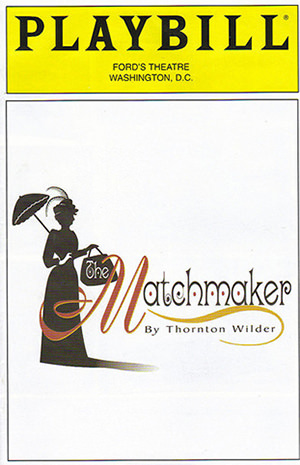
Plot summaries and critical analyses for Wilder’s full-length plays are now complete with the addition of The Matchmaker.
In his third contribution to our website’s Works area, Stephen Rojcewicz covers a broad assortment of topics including the history of the play, its revisions, and Wilder’s connections to Greek and Roman comedy. The following passage is an excerpt from his critical analysis of The Matchmaker.
Through his studies, his teaching, and even his early acting experience at Oberlin College, Wilder was acquainted with Greek and Roman comedy, including the figure of the Parasite, the parasitus, someone who tries to sit next (para) to a host for a dinner (sitos). In his classical sources, the Parasite was a figure of ridicule, a schemer, a threatener or bringer of lawsuits, sometimes a marriage broker, always trying to get money in any way he can, and especially striving to obtain invitations to dinner. Dolly resembles the ancient parasite as featured in Wilder’s classical sources: the Greek Menander (circa 344 – 292 BCE); and the Latin plays of the Italian provincial Plautus (Aulularia, and Pot of Gold, 205-184 BCE) and of the North African Terence (Phormio, 161 BCE). Many of the stock personages in Phormio directly correspond to characters in The Merchant of Yonkers3: the rich old man, the young men looking for brides, and the parasitus, who finds her incarnation, or rather apotheosis, in Dolly Levi.
Wilder’s adaptation of his sources, and his revisions throughout the various incarnations of the play, display a common theme. He transforms despised characters, genres, and materials into life-giving forces. Wilder makes the figure of the ridiculed parasite into the individual who calls the others into a fuller life; Dolly is thus Wilder’s alter ego.
We would like to thank Dr. Rojcewicz for his contribution to the Thornton Wilder Society website. Visit our Works area to read his plot summary and critical analysis of The Matchmaker.

